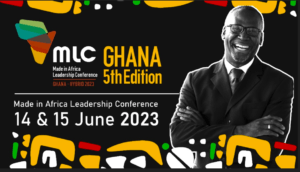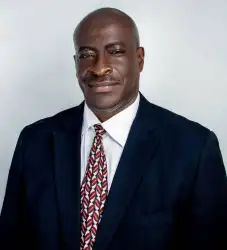This week, tens of thousands of people in Kenya cheered as William Ruto was sworn in as Kenya’s president at a ceremony in the capital Nairobi following his narrow election win last month. Mr Ruto hailed it as “a moment like no other”, adding that a “village boy” had become president.
This inauguration came after Mr. Ruto had been declared the winner, and then his victory was challenged in court by Mr. Odinga, and then the Supreme Court delivered a unanimous judgment in favour of Mr. Ruto, dismissing Mr. Odinga’s concerns that the election was marred by widespread irregularities.
Many international journalists and observers were surprised that despite the close nature of the election and the claims of irregularities, the transfer of power from Mr. Kenyatta to a former deputy with whom he fell out during their second term in office was smooth and free of violence or general unrest.
The process of validation of the results and inauguration lay in stark contrast to the events around Jan 6, 2021 in the USA, when another Presidential election result was contested in court, and the results were adjudged to be valid and the supporters of the defeated candidate attempted to overturn the election results with malfeasance, mayhem, and violence.
Since when did Africa start showing America how to do democracy?
It may have started in 1991, when Mandela and de Klerk showed the world that rivals and enemies could come together to sort out their differences in the interest of the greater good. The same rivals/enemies then competed against each other for the Presidency of South Africa in 1994. When the election was held and Mandela won, the defeated President de Klerk did not invoke the army to seize the ballot boxes or seek to invalidate the will of the people through malfeasance or insurrection; he recognized that he had been defeated and bowed out graciously.
In many countries in Africa, an entire generation of young Africans has no recollection or experience of military coup d’etats and the only vehicle that they have witnessed to change governments is the ballot box. From Nigeria to Senegal, from Zambia to Malawi, from Kenya to Tanzania, and from Mauritius to Ethiopia, general elections are becoming the norm and not the exception; the peaceful transfer of power from one party to another is becoming less of a novelty and more of normalcy.
This reality has profound implications for the future of our beloved continent. It means that the groundwork is being laid for long-term investment by Africans and non-Africans into Africa. It means that the loss of human capital that knocks countries back ten or more years whenever there is armed conflict is no longer an affliction of the African situation.
What can we learn from these macro trends?
- We settle our differences through peaceful means, not violent action. We will always have differences with other leaders or groups, and those differences may result in fundamental disagreements that make it difficult for us to pursue collaboration with another person; however regardless of the differences, we settle them through discussion, dialogue, debate and ultimately referendum. We do not engage in acts of violence.
- In times of sharp disagreement, we do not lose sight of the long term vision. The focus on the long term vision enables rivalling parties to put into perspective the issues they are at odds with each other and the weight they should place on these issues – ie, the importance that they should attach to the issues when viewed in context of the long term vision. Focusing on the long term vision also enables rivalling parties to recognize that there is much more common ground between them than may appear to be when they focus on the immediate problem.
- There is life after loss. The fact that a battle is lost does not mean that the war has been lost. This is important for political rivals to recognize…there is value that can be delivered as an opposition party. Similarly, even if your idea was not accepted at the management meeting and you were passionate about it, it is not a reason for you to pout, take your ball and go home.
- Remember who you are doing this for. Ask yourself for whom are you toiling and/or holding on to the position that you hold. You may find out that sometimes, the reason why you took the stand that you took may be difficult to articulate, even to yourself. When you are honest with yourself, the answer you provide may cause you to modify your position or your strategy to get to your desired outcome.
When Mandela and de Klerk first met, de Klerk offered him a deal to accept a proposal for “group rights” as a compromise to giving Mandela his freedom and protecting majority white rule by diminishing the value of the Black vote. Mandela disagreed and informed de Klerk, but did so in a manner that left him and de Klerk convinced that they could work together to bring about an end to Apartheid without irreparably fracturing the nation they both loved dearly.
They did this without de Klerk resorting to violence or Mandela exhorting his ANC members to use violence as a means of forcing de Klerk’s hand. They remembered who they were working for, and were committed to finding a non-violent solution to their problems.
Dear African Leader – in your leadership journey you will run into many situations of disagreement with other leaders – some of them sharp enough to inspire thoughts of violent bodily harm inflicted on your opponent. Please – for the sake of the people who depend on you for leadership – resist the urge to use the power that you have or think you have in a manner that creates or promotes violence. In the long run, nobody wins when violence occurs. The period of violence may be short, but its scars – emotional and economic – last a generation.











